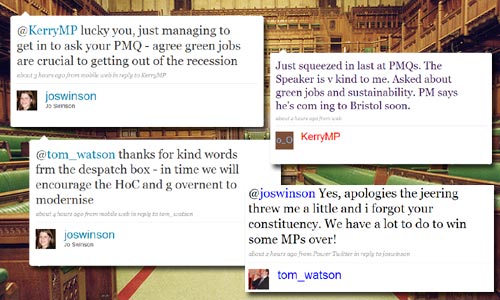Announced shortly before Christmas, and closing next week, the Commons Public Administration Select Committee is running a consultation on ‘the way in which Government develops and implements technology policy’.
They have produced an ‘Issues and Questions’ paper, posted online in PDF format; and they would like you to submit your responses ‘in Word format or a rich text format with as little use of colour or logos as possible.’ Oh – and they’re claiming ownership of all submissions, ‘and no public use should be made of it unless you have first obtained permission from the Clerk of the Committee.’ Not a great starting point, then.
The questions are as follows:
1. How well is technology policy co-ordinated across Government?
2. How effective are its governance arrangements?
3. Have past lessons from NAO and OGC reviews about unsuccessful IT programmes been learnt and applied?
4. How well is IT used in the design, delivery and improvement of public services?
5. What role should IT play in a ‘post-bureaucratic age’?
6. What skills does Government have and what are those it must develop in order to acquire IT capability?
7. How well do current procurement policies and practices work?
8. What infrastructure, data or other assets does government need to own, or to control directly, in order to make effective use of IT?
9. How will public sector IT adapt to the new ‘age of austerity’?
10. How well does Government take advantage of new technological developments and external expertise?
11. How appropriate is the Government’s existing approach to information security, information assurance and privacy?
12. How well does the UK compare to other countries with regard to government procurement and application of IT systems?
The thing is, this is a subject I feel passionately about. But I don’t see where I’m going to find the time – within effectively a two-week window – to give the Committee a free 3,000-word consultancy report. The only people who will find the time are those professionally engaged in the subject: and in a lot of cases, that means lobbyists (whether that’s their job description or not) from The Big Consultancies. And those turkeys won’t vote for Christmas.
 Bad news for anyone who’s just put a massive amount of work into an innovative, cutting-edge website for an MP. (
Bad news for anyone who’s just put a massive amount of work into an innovative, cutting-edge website for an MP. (